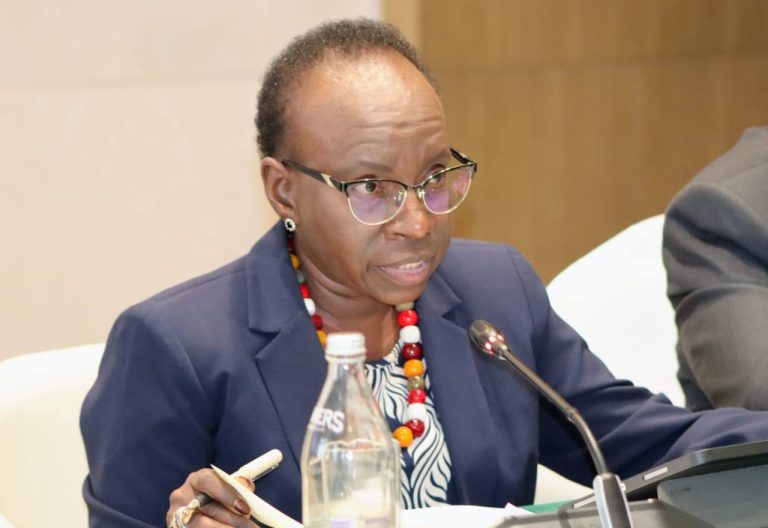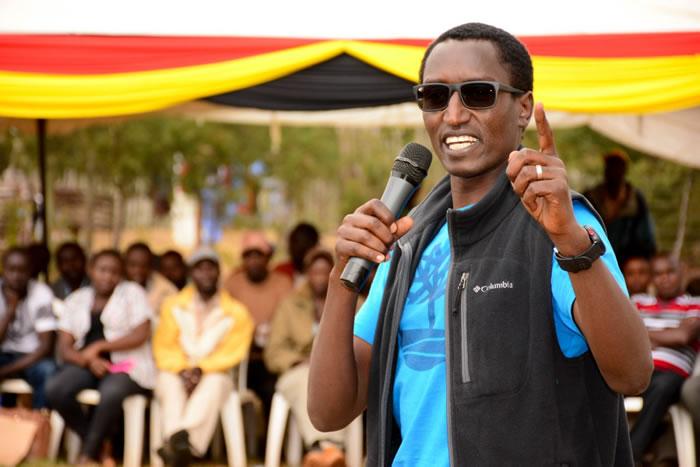Fighting counterfeits at the source

Kenya is dopting proactive approach by focusing on preventing counterfeit goods from entering the country. Robi Njoroge, Anti-counterfeit Authority CEO spoke to Business Hub on the new strategy
Q. Is implementation process of Intellectual Property Rights (IPRs) recordation promising to end counterfeiting in Kenya?
We are adopting a proactive approach to combatting counterfeiting by focusing on preventing counterfeit goods from entering the country in the first place, rather than trying to intercept them after they have already made their way into the country. This makes sense, as it can be more cost-effective and efficient to deal with counterfeits at the source before they can enter the Kenyan market and potentially harm both consumers, local industry, legitimate businesses and IP rights owners.
By implementing a recordation process, we are essentially creating a system for tracking and monitoring the flow of goods and ensuring that all imports are legitimate and meet the necessary IP standards. It also sends a message to would-be counterfeiters that the government is serious about cracking down on counterfeits and protecting IP rights.
Q. Have you faced any challenges with the implementation of IPR recordation process?
If yes, please elaborate. The implementation of the IP recordation programme is being constantly monitored and addressed in light of various challenges. Some of the challenges that have been observed include, but are not limited to: Lack of awareness and understanding among the public about IP rights and the significance of the recordation programme; weaknesses in the legal framework, including limited penalties for IP violations, slow dispute resolution processes, and ineffective enforcement mechanisms; the resistance from key stakeholders, such as IP infringers and counterfeiters; insufficient resources, such as funding, personnel, and technology; and technical challenges, including data management, security, and compatibility with existing systems.
Q. How do you cope with some of the challenges you face during the IPR recordation process?
The African Counterfeit Authority (ACA) is tackling the challenges of the IPR recordation process head-on. The ACA is educating the public, strengthening the legal framework, enhancing its resources, collaborating with other agencies, and partnering with international organisations to protect and enforce IP rights. These efforts aim to promote a better understanding of IP rights and deterring IP violations.
Q. Is the IPR recordation process easily understood by all Kenyans or the ‘common mwananchi’?
The level of understanding of the IP recordation system varies among individuals and is influenced by factors such as education, familiarity with IP rights and issues, and engagement with IP matters. The technical language used in IP discussions can also present a challenge for a general audience to grasp. To address this, the Authority is ramping up its public education and awareness efforts, aimed at improving the understanding of the IP recordation system and its significance. This initiative aims to enhance awareness of IP rights and the value of the IP recordation process, leading to a more successful implementation of the programme.
Q. How can one report counterfeit items to the anti-counterfeit authority?
Reporting counterfeit items to the Anti Counterfeit Authority can be done by contacting the Authority directly and providing important details about the product, such as its characteristics and where it was purchased. This information can be communicated through the Authority’s email at info@aca.go.ke or through their social media platforms, such as @ACAKenya for twitter, Facebook and Instagram.
Q. How does Anti-counterfeit Authority ensure the protection of registered IPRs?
By taking a multifaceted approach that includes enforcement, awareness campaigns, inspections, investigations, coordination and international cooperation.
Q. Could you describe the current process for recording IPR with the Anti-Counterfeit Authority in Kenya?
The process to obtain an Anti-Counterfeit Authority (ACA) permit for importing items involves the following steps: 1) Apply for an Import Declaration Form (IDF) on the iCMS website, 2) If the HS Code falls under ACA regulated codes, request an ACA permit on the iCMS, 3) Email your PIN to contactcenter@kentrade.go.ke and ask to be opted in for ACA permit, 4) Log on to https://tfp.kenyatradenet.go.ke, use the IDF number as reference, 5) Select “ACA” as the OGA code and “permit” as document type, 6) Declare brand name and enter unit price, 7) Attach a packing list, commercial invoice, or proforma invoice, 8) Add images of items being imported, 9) Pay a fee of USD 20 through M-Pesa Express or an i-Tax e-slip at a bank, 10) Submit the application, 11) The ACA will approve the application within one hour and the IDF will automatically be approved.
Q. What measures have been put in place to ensure the accuracy and efficiency of the IPR recordation process at the Anti-Counterfeit Authority in Kenya?
At the Anti-Counterfeit Authority in Kenya, a number of measures have been implemented to guarantee the accuracy and proficiency of the IPR recordation process. With their state-of-the-art online IPR registration system, applicants are able to effortlessly submit their applications and monitor their progress in real-time. The Authority has also employed automated verification and validation systems to streamline the application process and eliminate errors. They place a high emphasis on complete and accurate documentation, ensuring that all applicants provide the necessary information to support their application. Furthermore, the staff undergoes regular training and capacity building to ensure they have the necessary skills and knowledge to process applications effectively and with precision. These measures combine to make the IPR recordation process at the ACA both efficient and accurate.
Q. How does the Anti-counterfeit Authority in Kenya collaborate with other government agencies and stakeholders to enforce IPR laws and protect registered IPRs?
The Anti-Counterfeit Authority in Kenya partners with various key players in the government and private sectors to effectively enforce IPR laws and safeguard registered IPRs. This includes trade organizations, industry associations, and international organizations like the World Intellectual Property Organization. Additionally, the ACA collaborates with the Kenya Revenue Authority and the Kenya Police Service to seize counterfeit goods. By working with these partners, the ACA aims to raise awareness about the importance of IPR protection and to promote compliance with IPR laws.












